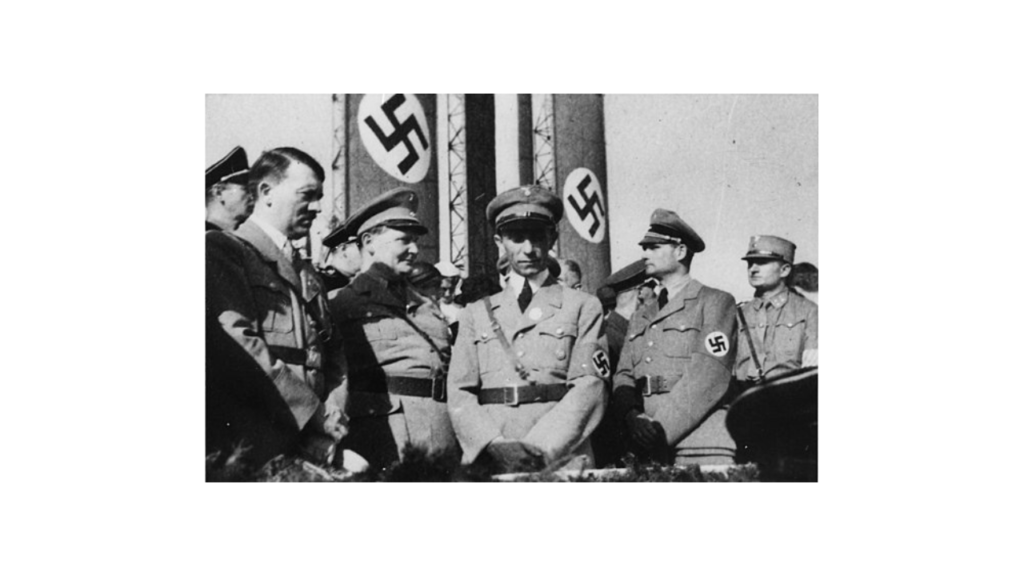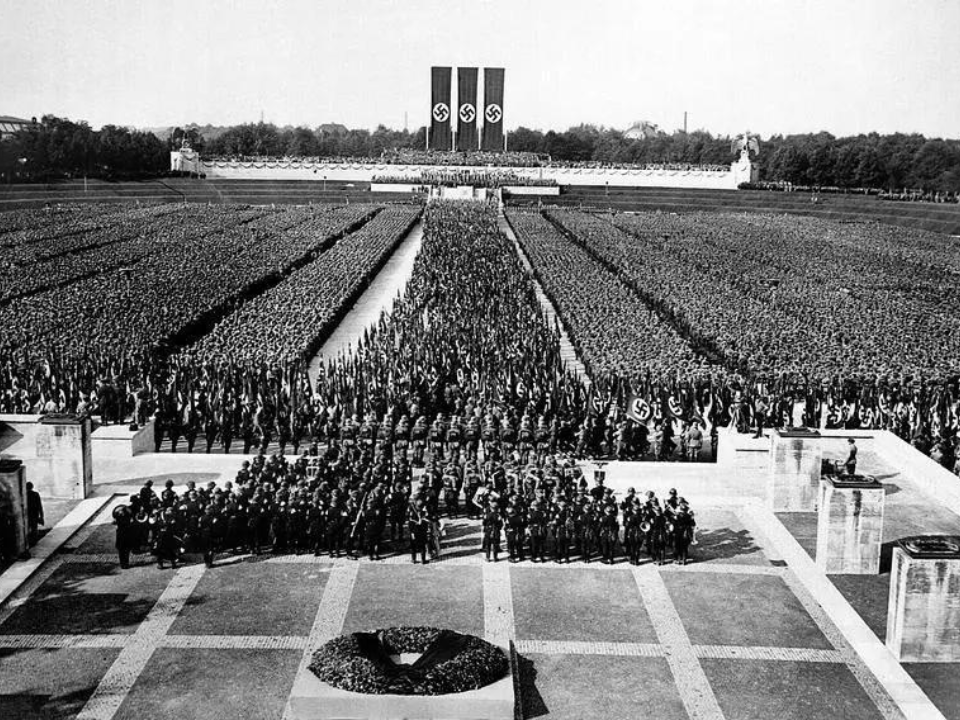The Ideological Foundations of Nazi Germany
For Reference: Nazi Germany | Part 1
The rise of Nazi Germany was not just a political or military phenomenon; it was also deeply rooted in a specific set of ideological beliefs. These beliefs shaped the policies and actions of the Nazi Party and played a crucial role in mobilizing the German population behind Adolf Hitler’s vision for the country. This article will explore the ideological foundations of Nazi Germany, examining the origins and development of the ideas that underpinned one of the most destructive regimes in modern history.
The Influence of 19th-Century Nationalism
The roots of Nazi ideology can be traced back to the 19th century, a period marked by the rise of nationalism across Europe. In Germany, nationalism was closely linked to ideas of ethnic purity and superiority. The concept of the Volk, or people, was central to this ideology, emphasizing the unity of the German people based on shared ancestry, culture, and language. This notion of a racially and culturally homogeneous nation was later co-opted by the Nazis to justify their exclusionary and genocidal policies.
Social Darwinism and the Survival of the Fittest
Another key influence on Nazi ideology was Social Darwinism, a distorted interpretation of Charles Darwin’s theory of natural selection. Social Darwinists believed that human societies were subject to the same laws of competition and survival as plants and animals. This belief was used to justify the idea that certain races were inherently superior to others and that the struggle between races was a natural and necessary part of human progress. The Nazis embraced Social Darwinism as a scientific rationale for their racist and expansionist policies.
Anti-Semitism and Racial Purity
Anti-Semitism was a core component of Nazi ideology, rooted in centuries of prejudice against Jews in Europe. The Nazis took these existing prejudices and amplified them, portraying Jews as an existential threat to the German people and the purity of the Aryan race. They propagated the belief that Jews were responsible for Germany’s defeat in World War I, the economic hardships of the Weimar Republic, and the perceived moral decay of society. This virulent anti-Semitism culminated in the Holocaust, the systematic extermination of six million Jews during World War II.
The Concept of Lebensraum
The idea of Lebensraum, or “living space,” was central to Nazi expansionist policies. Hitler and other Nazi leaders believed that the German people needed more territory to thrive and that this territory should be acquired at the expense of other nations, particularly those in Eastern Europe. This belief in the necessity of territorial expansion was driven by both economic and ideological factors, including the desire to spread Aryan supremacy and eliminate perceived racial threats. The pursuit of Lebensraum led directly to the invasion of Poland in 1939 and the start of World War II.

Image: Wikipedia
The Führerprinzip: Leadership Principle
Central to Nazi ideology was the Führerprinzip, or leadership principle, which held that ultimate authority rested with the Führer, Adolf Hitler. This principle was rooted in a rejection of democratic governance and the belief that a single, strong leader was necessary to guide the nation. The Führerprinzip demanded absolute loyalty and obedience to Hitler, who was seen as the embodiment of the will of the German people. This idea justified the centralization of power in Hitler’s hands and the suppression of all political opposition.
The Role of Propaganda
Propaganda was a crucial tool for disseminating Nazi ideology and maintaining control over the German population. Joseph Goebbels, the Nazi Minister of Propaganda, orchestrated a vast and sophisticated propaganda machine that permeated every aspect of German life. Through films, radio broadcasts, newspapers, and mass rallies, the Nazis promoted their vision of a racially pure, unified, and militarily powerful Germany. Propaganda was also used to dehumanize Jews, Slavs, and other groups targeted by the regime, making it easier to justify their persecution.
The Influence of Cultural and Intellectual Movements
Nazi ideology was also influenced by various cultural and intellectual movements of the late 19th and early 20th centuries. Romanticism, with its emphasis on emotion, instinct, and the glorification of the past, resonated with the Nazis’ rejection of Enlightenment values like reason and individualism. The writings of philosophers like Friedrich Nietzsche, particularly his concept of the Übermensch or “superman,” were selectively interpreted by the Nazis to support their ideas of racial superiority and the will to power.
The ideological foundations of Nazi Germany were complex and multifaceted, drawing on a range of influences from nationalism and Social Darwinism to anti-Semitism and militarism. These ideas were not unique to the Nazis but were instead rooted in broader European cultural and intellectual currents. However, under the leadership of Adolf Hitler, these ideas were radicalized and weaponized to create a totalitarian state that sought to remake the world according to its brutal and exclusionary vision. Understanding these ideological foundations is essential to comprehending the actions of the Nazi regime and the catastrophic impact it had on Germany and the world.
In the next article, we will explore the early years of Nazi rule, focusing on the policies and events that solidified Hitler’s control over Germany and set the stage for the horrors of World War II.
Details of the Featured Image
Roger Viollet/Contributor/Getty Images
Author
Ziara Walter Akari
© www.apotheosislife.com
